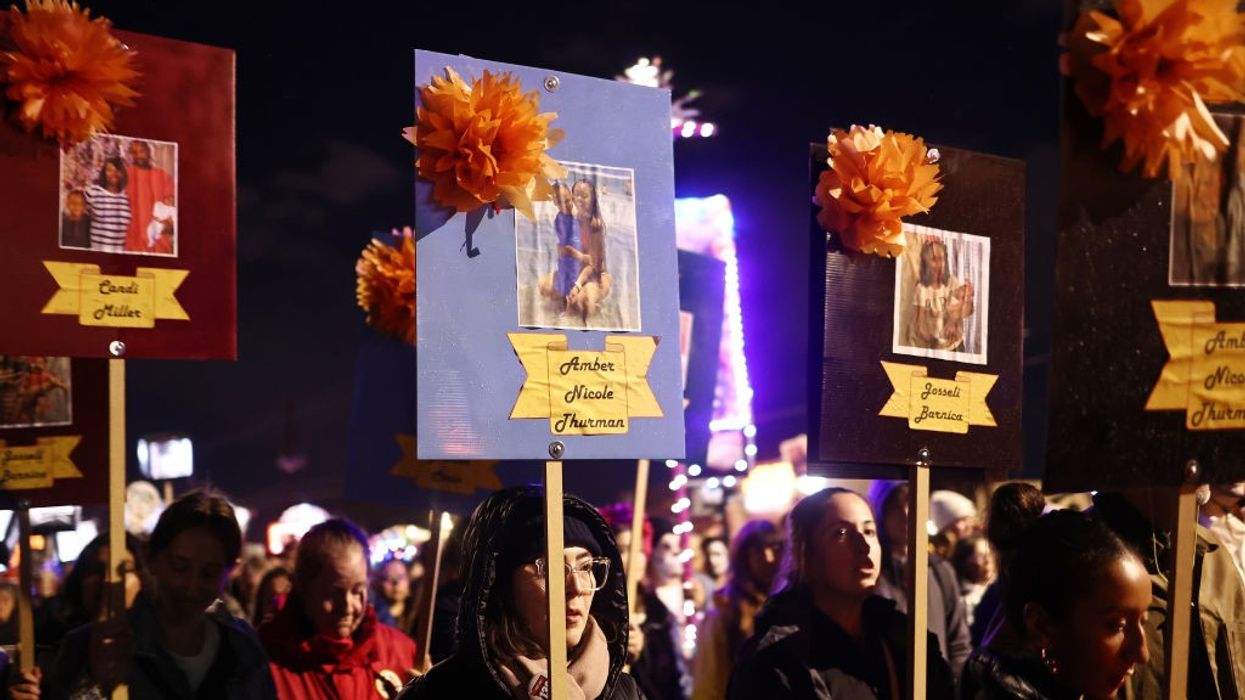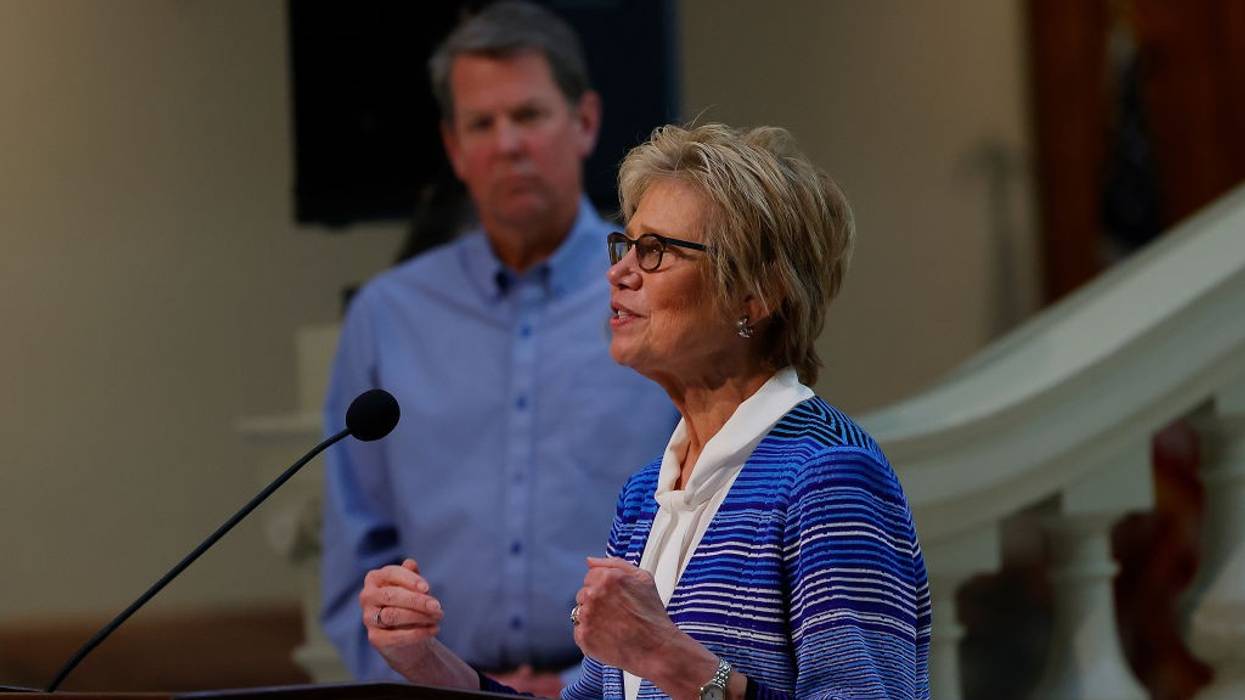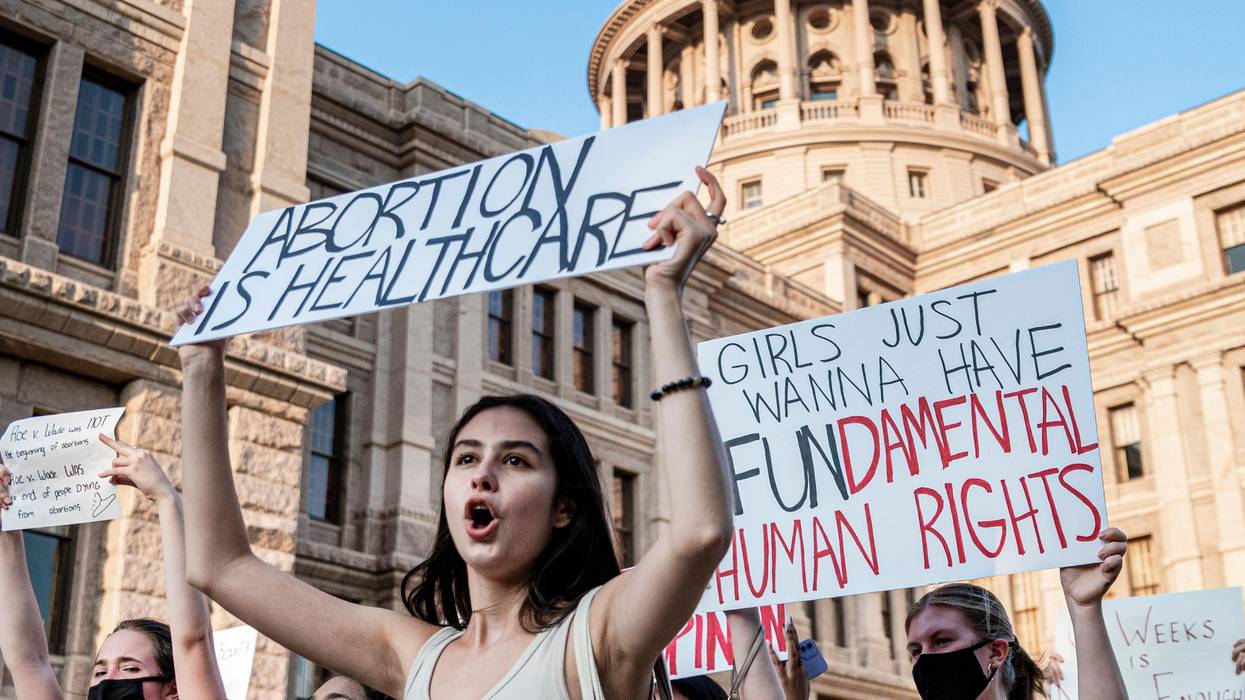Bracing for New Trump Attacks, Georgia Abortion Defenders Vow to Fight On
"We cannot quit. We cannot be silent. If we quit, we lose more women," said one mother whose daughter died after being denied care under Georgia's six-week ban.
Congresswoman Nikema Williams joined patients, healthcare providers, and activists—including the mother of a woman who died after being refused abortion care in Georgia—at a Tuesday press conference held a day before what would have been the 52nd anniversary of Roe v. Wade, and amid fears of a national abortion ban during U.S. President Donald Trump's second term.
"I refuse to stand by while extremist politicians attack our freedoms, our health, and our future," Williams (D-Ga.) told attendees of the virtual press conference, which was hosted by the abortion rights group Free & Just. "Reproductive freedom is about healthcare, it's about dignity, it's about autonomy. It's about ensuring that everyone, every person, has the ability to make the best decisions for themselves and their families without government interference."
Speakers at Tuesday's event included Shanette Williams, whose 28-year-old daughter Amber Nicole Thurman died in 2022 after being forced to travel out of state to seek care due to a recently passed Georgia law banning almost all abortions after six weeks of pregnancy, a period during which many people don't even know they're pregnant.
"I want to send a clear message to men to get off the sidelines and enter the fight for reproductive justice."
Thurman, who was the single mother of a young son, is one of at least several U.S. women—most of them Black or brown—whose deaths have been attributed to draconian anti-abortion laws.
"She left a son, who every day is confused by why his mother is not here," Williams said of her daughter. "I'm here to be that voice, to fight, to push, to do whatever I need to do to help save another life. Because I never want a mother to feel what I feel today."
"We cannot quit. We cannot be silent. If we quit, we lose more women," Williams added. "In November, following reporting from ProPublica, officials in Georgia dismissed all members of the state's Maternal Mortality Review Committee, which investigates the deaths of pregnant women across the state."
Last September, Fulton County Judge Robert McBurney struck down the state's six-week abortion ban as a violation of "a woman's right to control what happens to and within her body," a decision that made the procedure legal up to approximately 22 weeks of pregnancy. Republican Georgia Attorney General Chris Carr appealed the ruling to the state Supreme Court.
Avery Davis Bell, a Savannah mother who had to travel out of Georgia for care after her fetus was diagnosed with a fatal condition that threatened her own life as well, said during Tuesday's press conference: "I could have been Amber Nicole Thurman. It is important for me to continue sharing my story and advocating for us to be able to build the families we want, protect our lives, and be here for our living children."
Atlanta-area ultrasound technician and abortion care provider Suki O. said during the event that Georgia's ban "has been in place for three years now and it doesn't get any easier."
"To turn women away is the hardest thing for me to do," she added. "How many Black women will die, have died, and will continue to die due to these abortion bans?"
Davan'te Jennings, president of Young Democrats of Georgia and youth organizing director at Men4Choice, told the press conference that abortion "is not just a women's issue, this is a man's issue as well."
"I want to send a clear message to men to get off the sidelines and enter the fight for reproductive justice," Jennings added. "What would it look like for you to have to watch your mother go through this? To watch your sister go through this?"
While Trump has said he would veto any national abortion ban passed by the Republican-controlled Congress, reproductive rights advocates have expressed doubt that the president—a well-documented liar—would actually do so, and warned that his administration could use a 151-year-old law known as the Comstock Act to outlaw the procedure without needing congressional approval.
Critics also note that Trump has repeatedly bragged about appointing three of the U.S. Supreme Court justices who voted to overturn Roe in Dobbs v. Jackson Women's Health Organization, the 2022 decision that canceled nearly a half-century of federal abortion rights.
The Trump administration is also widely expected to revive the so-called Global Gag Rule, which bans foreign nongovernmental organizations from performing or promoting abortion care using funds from any source, if they receive funds from the U.S. government for family planning activities.
Conservative groups, including the Heritage Foundation-led coalition behind Project 2025—a blueprint for a far-right overhaul of the federal government—have proposed policies including a national abortion ban, restricting access to birth control, defunding Planned Parenthood, monitoring and tracking pregnancy and abortion data, and eviscerating federal protections for lifesaving emergency abortion care.
While campaigning for president, Trump said he would allow states to monitor women's pregnancies and prosecute anyone who violates an abortion ban. According to the Guttmacher Institute, 12 states currently have near-total abortion bans, and 29 states have enacted prohibitions based on gestational duration.


